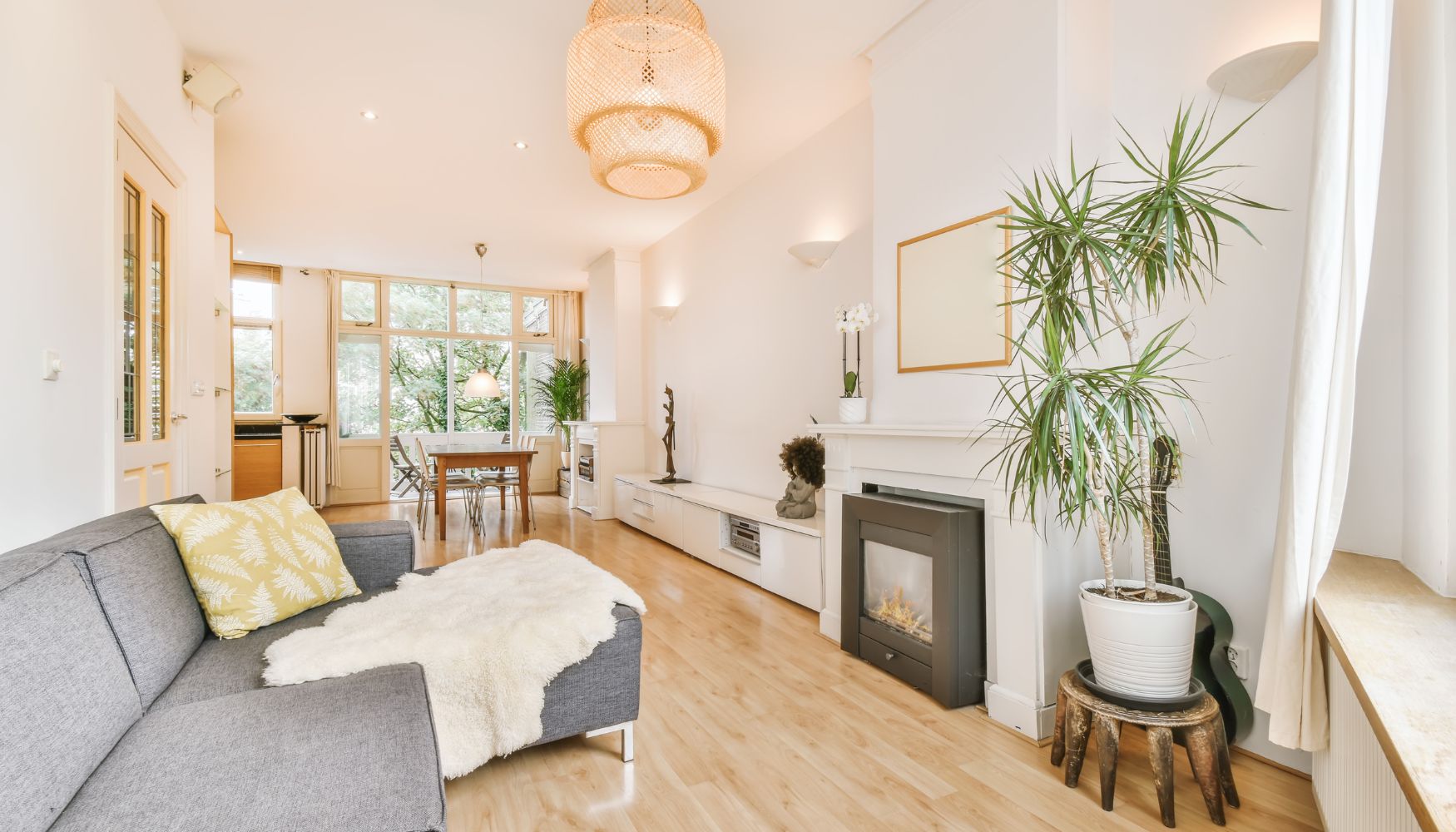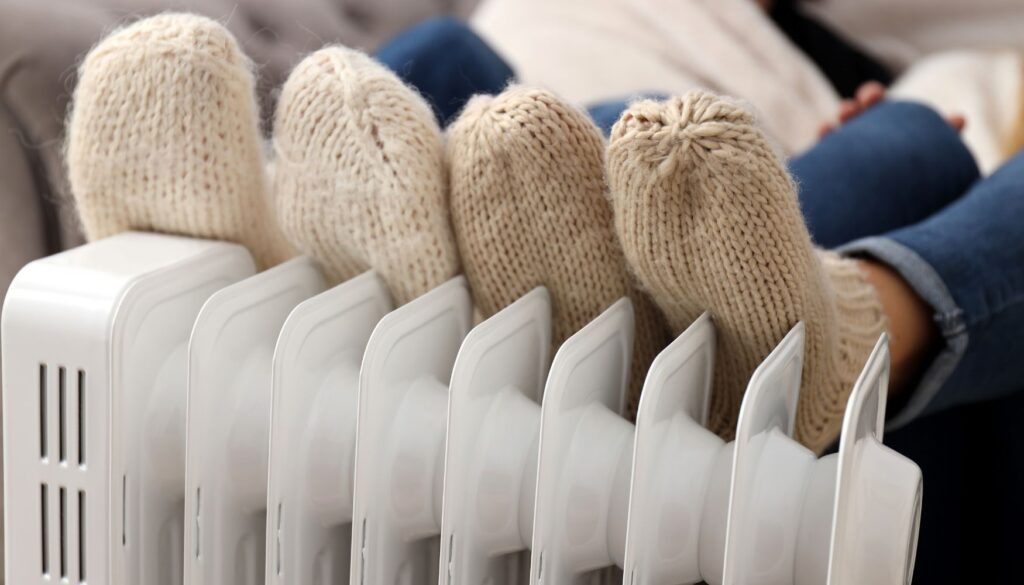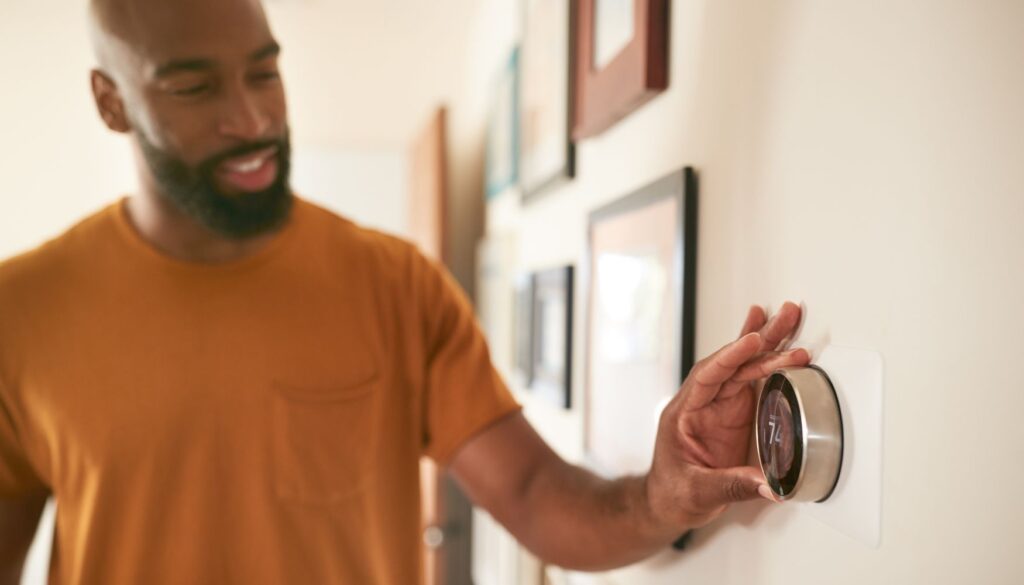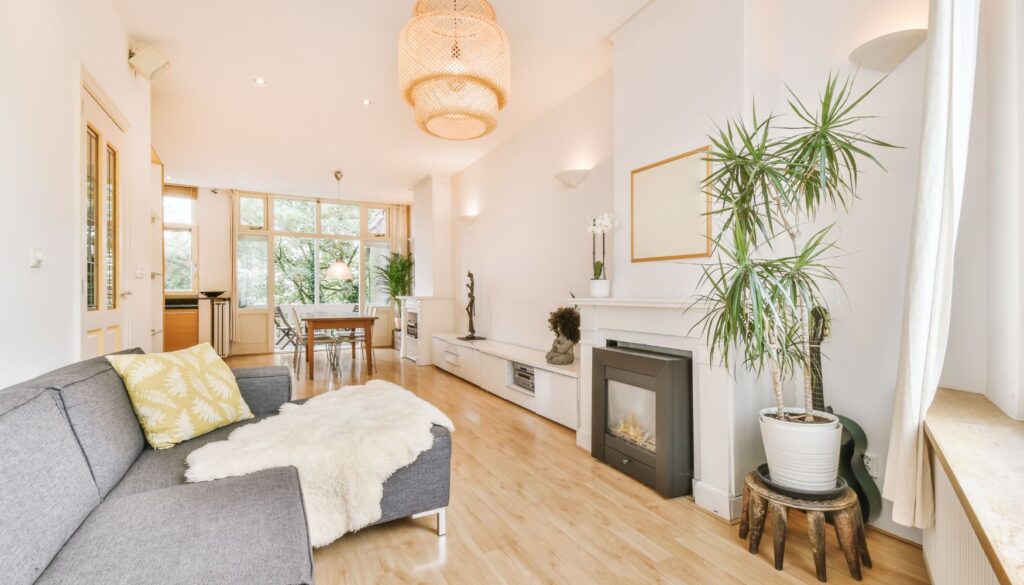
As a first-time renter, you’re unsure of who is supposed to be in charge of what. When it comes to your heating system, what are the heat requirements for landlords?
Regardless of whether you own the property or not, you want to know you and your family will be safe and comfortable all winter long. But before approaching your landlord about the heating responsibilities and any issues that may arise, know your rights to help ensure your relationship remains civil.
Learn about heating requirements, including when landlords are required to turn on the heat, who is responsible for which costs, and more.
Table of Contents
- Are Landlords Required To Provide Heat?
- Controlling the Temperature in Your Rental
- How To Reduce Heating Costs in Your Rental
- Addressing Heating Improvements, Repairs, and Other Options With Your Landlord
- Let AAA Heating and Cooling Handle Your Heating Needs This Winter
Are Landlords Required To Provide Heat?
In many states, it is the case that landlords are required to provide heat once temperatures hit a certain threshold. However, laws and regulations vary by state because of what is considered to be “safe and habitable living conditions.”
As a general guide, regardless of state or municipality, landlords are responsible for complying with safety regulations and providing functional and reliable electrical, heating, and water systems.
However, providing heat and paying for heat are different. While landlords are required to provide a well-maintained and working heating system, it is the tenant’s responsibility to pay for heat unless otherwise stated.
The Implied Warranty of Habitability should hold ground in all states. This should be written into residential leases to imply a promise that the property is maintained at suitable levels and that landlords comply with building codes and make repairs as needed.
If you’re having issues with the heating system in your rental, AAA Heating and Cooling can help. With over 60 years of experience, we provide reliable HVAC products and services to Portland families, ensuring comfort, health, and safety.
Tenant and Landlord Heat Requirements in Oregon
Both landlords and renters have obligations when it comes to heating a home in Oregon. Section 90 of the Oregon Residential Landlord and Tenant Act states regulations for both parties.
Tenant Responsibilities
According to section 90.325 of the Oregon Residential Landlord and Tenant Act, renters are obligated to use their heating and cooling equipment reasonably. This means keeping the thermostat to a comfortable temperature and ensuring the heating system and equipment are clear of debris and clutter to minimize fire hazards.
The Oregon Residential Landlord and Tenant Act also explains that the tenant may not deliberately damage, impair, destroy, or deface the heating system if it is broken. Instead, contact your landlord to take care of heating malfunctions rather than try to remedy them yourself.
It is crucial that a tenant advise a landlord regarding heating system problems as soon as possible. If a tenant waits too long or fails to provide notice, they are responsible for any damages.
Landlord Responsibilities
Section 90 of the Oregon Residential Landlord and Tenant Act also states that a landlord must ensure a residential rental property is safe, comfortable, and habitable, including providing tenants with essential services, including:
- Heat
- Electricity
- Locks on exterior doors
- Window latches
- Refrigerator
- Light fixtures
- Cooking appliances
Section 90.320 outlines the ways a landlord must maintain a property in habitable condition during a tenancy. In Oregon, a rental property is not considered habitable if it lacks “adequate heating facilities that conform to applicable law at the time of installation.” It must also be maintained and in good working order.
The act also states:
- The temperature in a rental unit should not be so low that it endangers the health of the occupants.
- If the temperature outside is 20℉, the heating system should heat the home to at least 68℉. If a tenant chooses to keep the home cooler than 68℉ with a heating system that works well, they are responsible for any damages that occur.
- The heating system should not put the home’s other facilities at risk of freezing.
According to section 90.375, a landlord may not in any way diminish essential services that would make a tenant leave the premises. If this occurs, tenants may:
- Obtain an injunctive relief; or
- End the rental agreement and receive the correct compensation
If a tenant ends the rental agreement, the landlord must return all security deposits and prepaid rent.
General Landlord and Tenant Heat Requirements
With minimal habitable requirements in mind, both landlords and tenants have obligations. Typically, they’re as follows:
- If a heating system’s components wear out during its lifespan, the landlord is responsible for repairs.
- If a heating system is faulty, the landlord is responsible for paying for and fixing the repairs.
- If a tenant breaks a heating system, whether intentionally or accidentally, the tenant is responsible for the repairs.
- A landlord has the right to deduct repair costs from a tenant’s security deposit if a tenant refuses to pay for heating system repairs if they are responsible for breaking the system.
Let AAA Heating and Cooling help maintain, repair, or replace your heating system. Contact us today for help.
Controlling the Temperature in Your Rental
Depending on your landlord, you may have signed a lease agreement that supports you as the tenant having control over the temperature settings of your thermostat. However, some landlords are strongly against allowing their tenants access to the thermostat.
Although the general rule is that the rental maintains a temperature of at least 68℉ when temperatures begin to cool down outside, there may be buffer room.
Preparing for Winter
As a landlord, if you’re choosing not to allow tenant access to the thermostat, you should prepare your rental unit for colder months and winterize the unit to help keep energy costs down. You should:
- Reverse ceiling fans
- Test alarms
- Clean the chimney
- Set the thermostat
- Add insulation
How To Reduce Heating Costs in Your Rental
Whether you’re a landlord or a tenant, focusing efforts on reducing heating costs can be beneficial. The U.S. Department of Energy recommends these tips for helping to lower heating costs in the winter:
- Conduct yearly energy assessments, including checking insulation levels, inspecting heating equipment, and locating and fixing leaks.
- Open curtains and shades to allow the sunlight to warm up the rooms.
- Keep unused rooms closed, if possible.
- Routinely check for drafty windows, broken vents, and air duct leaks.
- Upgrade your heating system.
Addressing Heating Improvements, Repairs, and Other Options With Your Landlord
Is there an issue with your heating system and you’re unsure whose responsibility it is to address it?
- Refer to your rental agreement. The agreement should have information about who is responsible for such issues and step-by-step instructions about how to place a maintenance request. They might include calling the landlord directly, contacting the property’s maintenance department, filling out a service request form, or submitting a request online.
- Send the landlord notice in writing. In your notice, include the current date, the date the system stopped working, observations you made regarding the issue, and your contact information. Send the notice via certified mail and keep a copy for your records.
If your landlord does not respond appropriately, you may ask your local code enforcement officer to inspect the home. If the specialist finds something wrong with the heating system, they will send a notice to your landlord. If the landlord continues to ignore the problem, consult with an attorney regarding the appropriate next steps to take.
If the heating system does not work well for your living situation, talk with your landlord. While they are under no obligation to replace equipment that works well, they may be willing to provide an alternative solution or make a suggestion regarding energy-efficient home comfort solutions.
Let AAA Heating and Cooling Handle Your Heating Needs This Winter
You don’t have to suffer through a cold winter, no matter who is in charge of your heating system. Whether you’re a landlord or a tenant, knowing the heating requirements of a landlord is important to ensure the safety, comfort, and health of every tenant.
If your rental property has heating-related problems, address them right away.
At AAA Heating and Cooling, our team of certified experts can perform a thorough inspection to get to the root of the issue. We’ll offer a solution and work on replacing what’s necessary as quickly as possible.
To ensure your heating system is working well all year long, let AAA Heating and Cooling handle your routine maintenance. We’ll help you minimize heating issues and save money down the road.
Contact us to get started on your Portland heating needs today.



